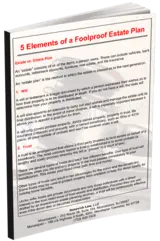As long as you have drafted your will in writing and signed it with two witnesses present, it will be executed upon your death exactly in accordance with the language in the document. If your circumstances or desires change with regard to your personal property and beneficiaries, you may need to alter your existing will through a codicil.
Codicils in Manalapan Township are generally straightforward documents, provided that the change the testator wishes to make is straightforward as well. However, it is important to ensure a codicil is both clear about what should be changed in an existing will and enforceable during probate, and an experienced lawyer could provide crucial assistance to meet both of these requirements.
When Might a Codicil Be Necessary?
While New Jersey state law does not set any rules regarding what a codicil can and cannot address, they are generally meant for small changes to a will that leave most of the original document intact. Some of the reasons that a person in Manalapan Township might draft a codicil to their will include:
- Adding or removing a beneficiary
- Adding or removing property
- Making adjustments to a property distribution plan after a beneficiary passes away
- Changing which beneficiaries will receive which assets
- Adjusting cash gifts for inflation, updated tax laws, or changes in personal fortune
Matters like these often just require switching out one person’s name or adding a new item to an existing list of property, so a short codicil may be sufficient to ensure they are recognized in the existing will. A will can also have more than one codicil and still remain valid. However, more substantial changes or a great number of individual codicils may warrant the testator starting over and writing a completely new will, for the sake of simplicity and easy enforceability.
Ensuring a Codicil Is Enforceable
When it comes to making the document legally valid, most of the same rules that apply to wills also apply to codicils. To be enforceable during probate or in the face of legal challenges, a codicil should be in writing, signed by the testator and two competent witnesses, and kept in the same place as the will it modifies.
It can be helpful to mention the date the original will was drafted on a codicil, so that it is clear to someone reading the will or executing upon it what additional documents should be read with it and in what order. Furthermore, it should be noted that a codicil’s witnesses do not have to be the same witnesses who signed the original will.
A person who wants to make a small change to their will should always draft a codicil through the procedures mentioned above, rather than crossing out or adding anything to their original will. While handwritten codicils have been accepted by state courts before, failing to make this sort of adjustment properly can result in a stressful and legally complex situation.
A Manalapan Township Attorney Could Help Draft a Valid Codicil
Minor adjustments to a person’s will are almost always necessary at some point after the original document is first drafted and signed. Fortunately, you do not have to completely rewrite your will for every small change you wish to make, provided you go about creating a codicil the right way.
Assistance from legal counsel can go a long way towards ensuring codicils in Manalapan Township are effective and enforceable. Find out today how a trusts and estates lawyer could help you by scheduling a consultation today.

 (856) 439-6223
(856) 439-6223
